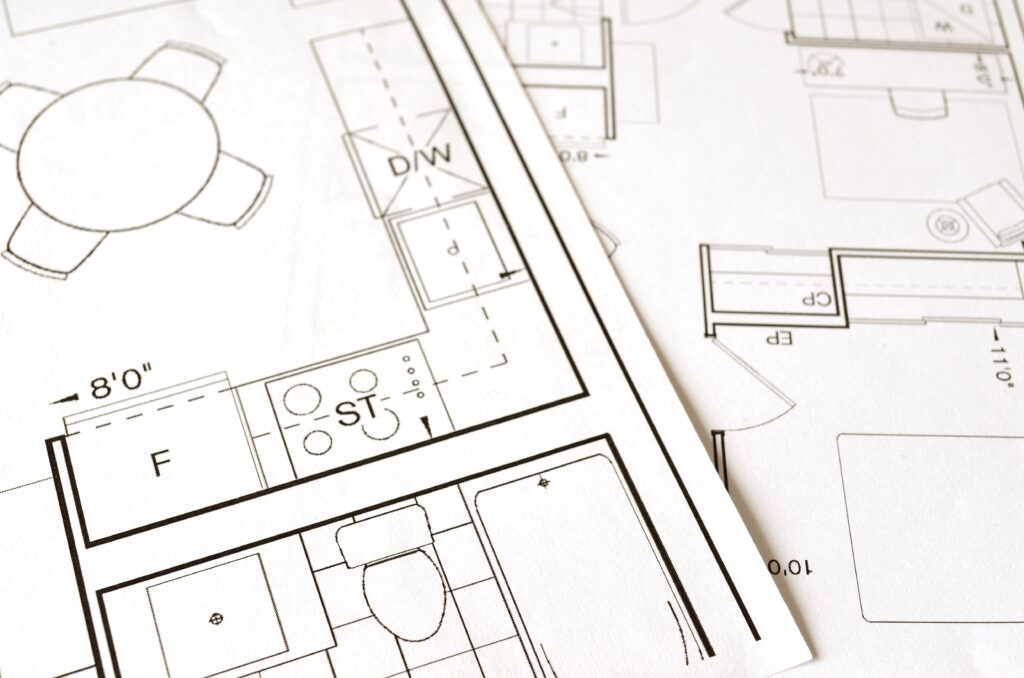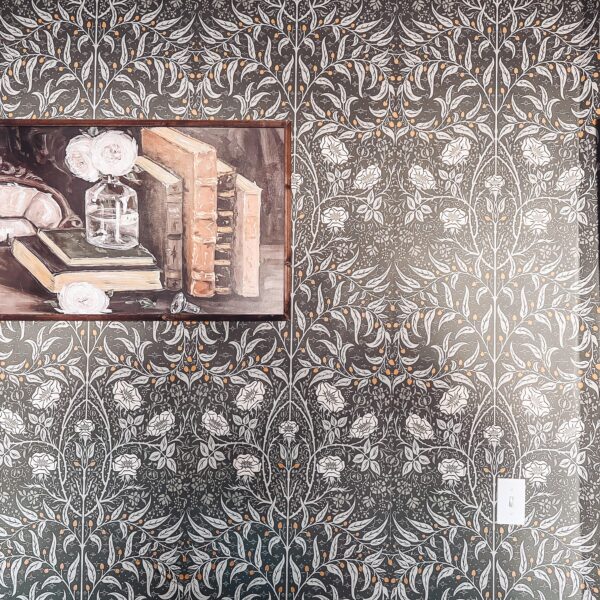We bought a new house from a Tract residential home builder. But this was not part of the plan. Now, I know what you are thinking. It’s all of the questions of why, what, how, and where. Because I’m an Interior Designer, I wasn’t sold on the idea of buying from a Tract or Spec residential home builder. I wanted a custom home where I designed the whole home. I found a floor plan online as a starting point and then made changes to it and started my holistic interior design process. I even found a custom residential home builder and was looking for land to build it on. But I was wrong. It was so much work! It also got very costly very quickly. I’m continuing the story over here but I want to save you, dear reader, from heartache and time wasted so I want to introduce you to all three types of builders so you can make an informed decision on where to start your home-building journey!
What are the 3 Types of Residential Home Builders?
There are three business models that define most residential home builders: tract, spec, and custom. Each of these models offers different benefits and drawbacks for new construction homebuyers to consider. But the reality is that builders are seldom just one type. For example, custom residential home builders will often build spec homes from time to time, either to use as a model home or to showcase for a Parade of Homes in the local area. Even tract home builders occasionally build homes outside their subdivisions.

What is a Tract Residential Home Builder?
A tract builder may also be known as a “production builder”. These are generally big, established builders that are often Statewide if not national companies.
They are generally in just a few neighborhoods in a city, and build dozens or hundreds of homes in each neighborhood.
They typically offer a limited range of floor plans and home design features to choose from in their own design center, without too much flexibility. They try to replicate in multiple homes within a development or neighborhood. These designs are often pre-approved by local authorities.
They also generally build homes whether they have buyers yet or not, meaning they may have some completed construction vacant, for sale, and ready to move in. Since tract builders use standardized designs and materials, they can complete homes more quickly compared to custom builders.
Often they will have a fully staged model home in each of their neighborhoods where their sales associate works full time. However, tract homes tend to look similar to neighboring houses, which means you may have less individuality in your home’s design.
Some tract builders also work with local agents to list their homes in the MLS, though it is hit or miss whether they do that, and almost never does all their inventory make it to the MLS.
While they definitely often have some of the most affordable options, they are not always “cheap”. Tract homes are generally more cost-effective than custom-built homes because builders can take advantage of economies of scale and streamlined processes. Although, many tract builders have several different tiers of homes with different upgrades standards depending on the neighborhood.
What is a Spec Residential Home Builder?
Spec” is short for “speculative”, because spec builders buy a lot and start building even without a buyer yet, “speculating” that they can sell the home for a profit when done due to market demand. The quality and upgrades of spec builders cover nearly the entire range, from affordable starter homes to higher-end new construction. Many custom builders also build spec homes, and spec builders sometimes build custom homes, so the line between spec and custom builders is blurred a little.
Spec builders are similar to tract builders in that they start building a home even before they have a buyer. Unlike tract builders, they do not own large “tracts” of land or lots in a neighborhood that they are committed to building on.
Instead, they will generally buy lots one at a time and begin building. The floor plan and features may change with every home.
If they have already started a home, many items are likely going to be set in stone and cannot be changed, but they often will build a home from the ground up with more flexibility.
Spec builders may or may not have a model home to view. However unlike tract builders, many employ local real estate agents to work the sales office and conduct their sales business, for which reason you will more often find spec builders’ homes on the local MLS.
Spec builders are more likely to be flexible on terms like the price if it is an inventory home that has been on the market for a long time.
Unlike custom builders, spec builders often require terms more comparable to preowned or tract homes regarding upfront costs like earnest money and deposits.
Remember, the home may or may not be built with you, the homeowner, in mind.
What is a Custom Residential Home Builder?
You can have anything you want because you’re paying for it! Custom builders can build you practically anything, limited only by your budget, imagination, and local building or neighborhood regulations.
Unlike the two other builder types, custom builders do not start building until they have a buyer, so they almost never have vacant, completed homes to view unless they have a buyer who failed to close. Sometimes they will build a spec home, for example when competing in the Parade of Homes.
Custom builders are not flexible on pricing, and are much more expensive to get started. They often require a 5-10% deposit upfront, plus other fees like lot fees and architect fees if your floorplan is customized.
Unlike spec and tract builders, custom builders sometimes require that you buy your own lot, first, especially if you are at very high price points or building on land in the country. These can get pricey really quickly depending on the lot and where you want to build.
Custom builders almost never have model homes or listing agents, but do often have offices where they meet customers. You will almost never find their homes on the local MLS. Most custom home builders build fewer than 10 homes a year. There is normally a long wait time for the home to be built as well.
In conclusion,
Knowing what kind of builder you are working with will help you understand what to expect from your builder and the process. Choosing a type of builder ultimately depends on your specific needs, preferences, budget, and timeline. We chose to buy from a reputable Tract builder because they offered us a well-crafted move-in ready home that met the majority of our needs, could always be added to later, fit in our budget, and allowed us to live in the type of community that we always saw ourselves living in! Are you starting the build process? If so, what stage are you in? If you would like an interior designer to add to your team, hit me up here!
Love,






[…] land. But I was wrong. It was so much work! It also got very costly very quickly. I talk about the 3 types of builders in this post. So what does our “Phase 1” currently look like and where are we […]